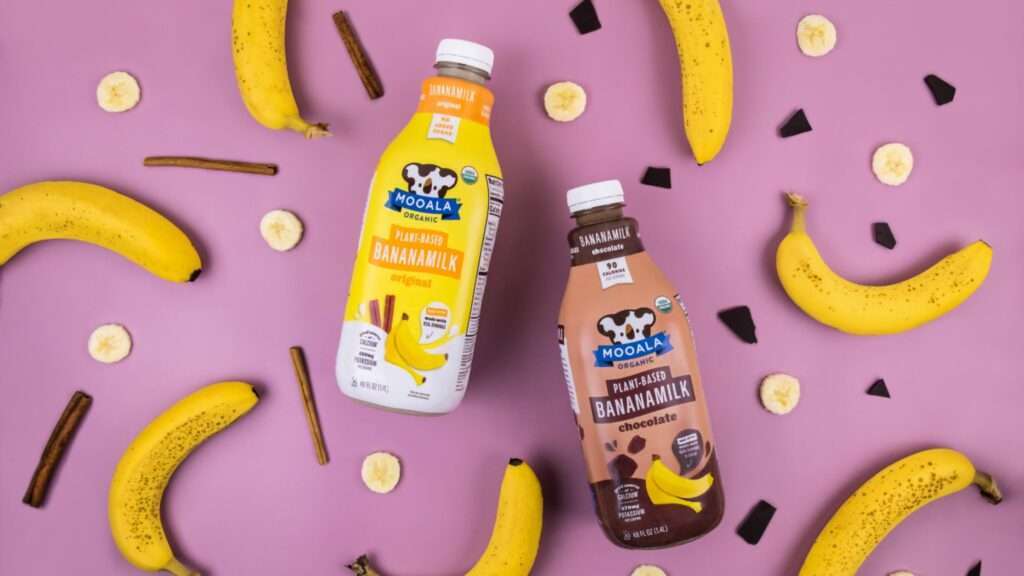There’s so much buzz about plant-based food — and it’s warranted. But in our rush to eat more sustainably and ethically, have we forgotten about the benefits of eating organic, too?
While having a more balanced life and losing weight will always be chart toppers for New Year’s resolutions, 34 percent of Americans are prioritizing eating more organic food. Benefits of opting for organic are numerous but there is still a large percentage of Americans who don’t understand the why behind that certification.
By law and default, organic products are not genetically modified (GMO). But that doesn’t make non-GMO organic; organic certification goes many steps further than non-GMO. Unlike non-organic and non-GMO products, organic products that are regulated by the USDA cannot contain artificial colors, flavors, preservatives, synthetic ingredients, or toxic pesticides. That’s right, non-GMO products that are not certified organic can be drenched in herbicides and pesticides.
Growing products organically also enhances soil fertility. One of the most surprising things that differentiate organic foods from non-GMO and non-organic foods is that non-organic and non-GMO foods can be grown in sewer sludge. Yuck!

You read that last one correctly. USDA-organic certified products, by law, cannot be grown in sewer sludge, contain toxic, persistent pesticides, and cannot contain synthetic ingredients, artificial colors, flavors, or preservatives, whereas non-GMO foods, and certainly non-USDA organic foods, could be grown in sewer sludge without recourse.
Buying organic matters to around 60 percent of U.S. consumers, but when consumers learned of the benefits of consuming organic products, organic purchase intent increased to 72 percent. Yet, nearly one-third of Americans said that buying organic still does not matter to them after learning the why behind organic.
All but 2.7 percent of Americans said they have at least some knowledge of food labels. Nearly half of Americans consider themselves food label experts and check nutrition labels diligently. Yet, only 41 percent of Americans understand that USDA-Organic is a more regulated and better-for-you certification than non-GMO. In fact, 18 percent of consumers thought that a food or beverage classified as non-GMO was better than organic.
For those who already prioritize organic food and beverages, vegetables and fruit are the top categories of organic purchases, and three out of four U.S. consumers wish their grocery stores would offer more organic options. While price continues to be the number one deterrent to consuming more organic products, many brands are focused on expanding organic in conventional, price-accessible stores.

While buying organic produce is widely accepted as critical, organic consumption on the dairy aisle is head-scratchingly lower; even though the vast majority of U.S. households consume dairy or dairy alternatives on a daily basis. The reason? Big food companies like it that way!
Non-organic plant-based milk is cheaper to make, driving profits and volume. Big companies want you to assume that plant-based means “healthy,” even though you may be consuming non-organic oats or almonds that have been grown with harmful herbicides and are irresponsibly farmed. Since almost all dairy alternatives are non-organic, it is in the big food companies’ best interests to keep you consuming non-organic to keep their market share and bottom line intact.
Last year, the Good Food Institute reported that plant-based milk sales hit $2.6 billion in the U.S., which is up 33 percent in comparison to 2018. So, consumers should start prioritizing organic purchasing for this category as well to avoid consuming residual harmful herbicides and support sustainable farming.
Do we have a vested interest in more shoppers prioritizing organic? As a USDA-organic brand, yes we do. But as more Americans learn of the real reason behind why organic matters, we hope they will also have a vested interest in stocking their fridges and pantries with organic staples for the health of themselves, the planet, and future generations.
Jeff Richards is the founder and CEO of the certified organic dairy-free milk brand, Mooala.
Related on Ethos:


